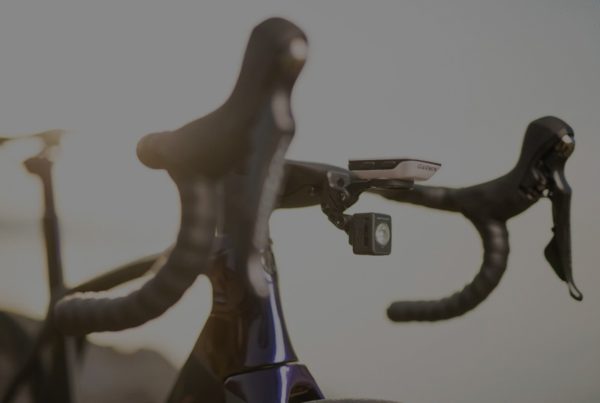By Bob Mionske
Posted Sep. 25, 2003
Legally Speaking – with Bob Mionske: My stolen bicycle
Dear Bob;(
A year or so ago, my apartment was broken into, and my bicycle wasstolen. It was a classic Italian racing bike from the early 1980’s, soI didn’t get all that much money from my insurance company.
Recently, I went to a century ride and started riding in a pacelinewith a group of cyclists I didn’t know. As I dropped back from riding on point, I looked over, and there was my old bicycle!
I followed the guy back to the finish line, got his auto tag number and called the cops. They say they are looking into it, but nothing so far. What would have happened if I had just grabbed the bike, the guy,or both? Would I have gotten in trouble?(
H.W.(New York
Dear H.W.:(
You did the smart thing. Self-help recovery of stolen property is often legal, but can be tricky. Legally, a person cannot be guilty of stealinghis own property, and proof of title is usually sufficient to defend againstan accusation of theft. A U.S. Military Court of Appeals overturned the robbery conviction of a soldier who recovered an exercise bicycle from the apartment of his former girlfriend. In addition, in most (but not all) states a reasonable, good faith belief that one is the owner of property is an affirmative defense against theft.
However, there are many exceptions and reservations to this general rule. Because your insurance company gave you a settlement on the stolen bicycle, they, not you, may be the owner of the bicycle. Moreover, because you signed a settlement agreement with the insurance company, a prosecutor may be able to argue that you had reasonable notice that the bicycle no longer belonged to you, so you lacked even a reasonable, good-faith belief that you were recovering your own property.
Also, you must recover only the specific property that was taken from you. In a State of Washington case, a landscape worker stole a weed-wacker from his boss, a landscape contractor. The owner went to the worker’s homeand took a weed-wacker from his carport. It was the same make and model,but wasn’t the same wacker that was stolen from the contractor,who later had to pay a $10,000 criminal fine for theft. If your bicyclethief bought a new set of wheels and put them on the bike before you appliedself-help recovery, you could be guilty, depending on the state, of eitherstealing the wheels or, because it wasn’t the specific property taken fromyou, of stealing the entire bicycle!
What if the guy you saw at the century was not the thief, but someone who innocently bought it from the thief? A person who pays a reasonable price to a seller, and who is unaware that the seller does not own title, is called a bona fide purchaser. While every state allows the genuine owner (that’s you) to recover property from a bona fide purchaser, the genuine purchaser cannot use self-help recovery—she must go through the law. The use of self-help would be illegal.
Finally, the use of force, threat of force, or a retaliatory act to recover nullifies the defense of good-faith self-help in every state that I was able to find on-point law. While one New York judge noted that his state permitted a limited right of self-help recovery, he cautioned that:
“The availability of such remedy does not countenance self-help whichinvolves the threat or actual use of force”
In a California case, juvenile A believed that juvenile B had stolen his bicycle. To get it back, A took B’s bicycle and locked it in his parents’ garage (with their permission) until his bicycle was returned. B’s parents,knowing only that B’s bicycle had been stolen, called the cops. Both kids and the garage-owning parents all ended up going before the juvenile court. In the military court case mentioned above (where the soldier recovered his exercise bicycle from his former girlfriend’s apartment) one judge advocate noted that it was a very good thing that the soldier’s name was still on the apartment lease and that he lawfully had a key to the door, because if the soldier hadn’t, the judge would have cleared him of the theft charge and then had him arrested on his way out of the courtroom for breaking and entering!
This raises one final point you should consider about self-help recoveryof stolen property: the authorities don’t like it. Self-help recovery ismessy and tends to get people hurt. In at least two states, Arkansas and Washington, self-help recovery is prohibited if it threatens a breach of the peace. This is probably true in several more states. I believe you exercised sound judgment. It is likely that the reason you haven’t heard back from the police is because the guy you saw at the century was a naive buyer, and the police are tracing back his source, who may be a big-time thief or professional dealer of stolen goods (or the police have more pressing cases than a stolen bicycle). I suggest you call your insurance carrier and tell them you might have a lead. They would like to get some of their settlement back, and may have a contact at the police department or district attorney’s office they will try. Take heart—there’s a fairly good chance you’ll see your bike once more.
Good luck,(Bob(
(research and drafting assistance provided by Bruce Epperson-lawstudent-Nova Southeast University)(
Now read the fine print:
Bob Mionske is a former competitive cyclist who represented the U.S. at the 1988 Olympic games (where he finished fourth in the road race), the 1992 Olympics, as well as winning the 1990 national championship road race.
After retiring from racing in 1993, he coached the Saturn Professional Cycling team for one year before heading off to law school. Mionske’s practice is now split between personal-injury work, representing professional athletes as an agent and other legal issues facing endurance athletes (traffic violations, contract, criminal charges, intellectual property, etc).
If you have a cycling-related legal question, please send it to info@bicyclelaw.com. Bob will answer as many of these questions privately as he can. He will also select a few questions each week to answer in this column. General bicycle-accident advice can be found at bicyclelaw.com.
Important notice:
The information provided in the “Legally speaking” column is not legal advice. The information provided on this public web site is provided solely for the general interest of the visitors to this web site. The information contained in the column applies to general principles of American jurisprudence and may not reflect current legal developments or statutory changes in the various jurisdictions and therefore should not be relied upon or interpreted as legal advice. Understand that reading the information contained in this column does not mean you have established an attorney-client relationship with attorney Bob Mionske. Readers of this column should not act upon any information contained in the web site without first seeking the advice of legal counsel.
This article, My Stolen Bicycle, was originally published on VeloNews on September 25, 2003.



